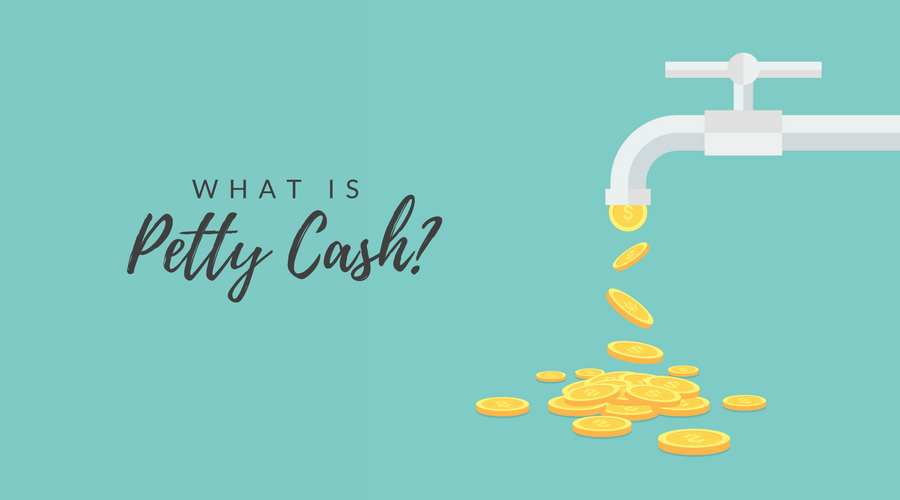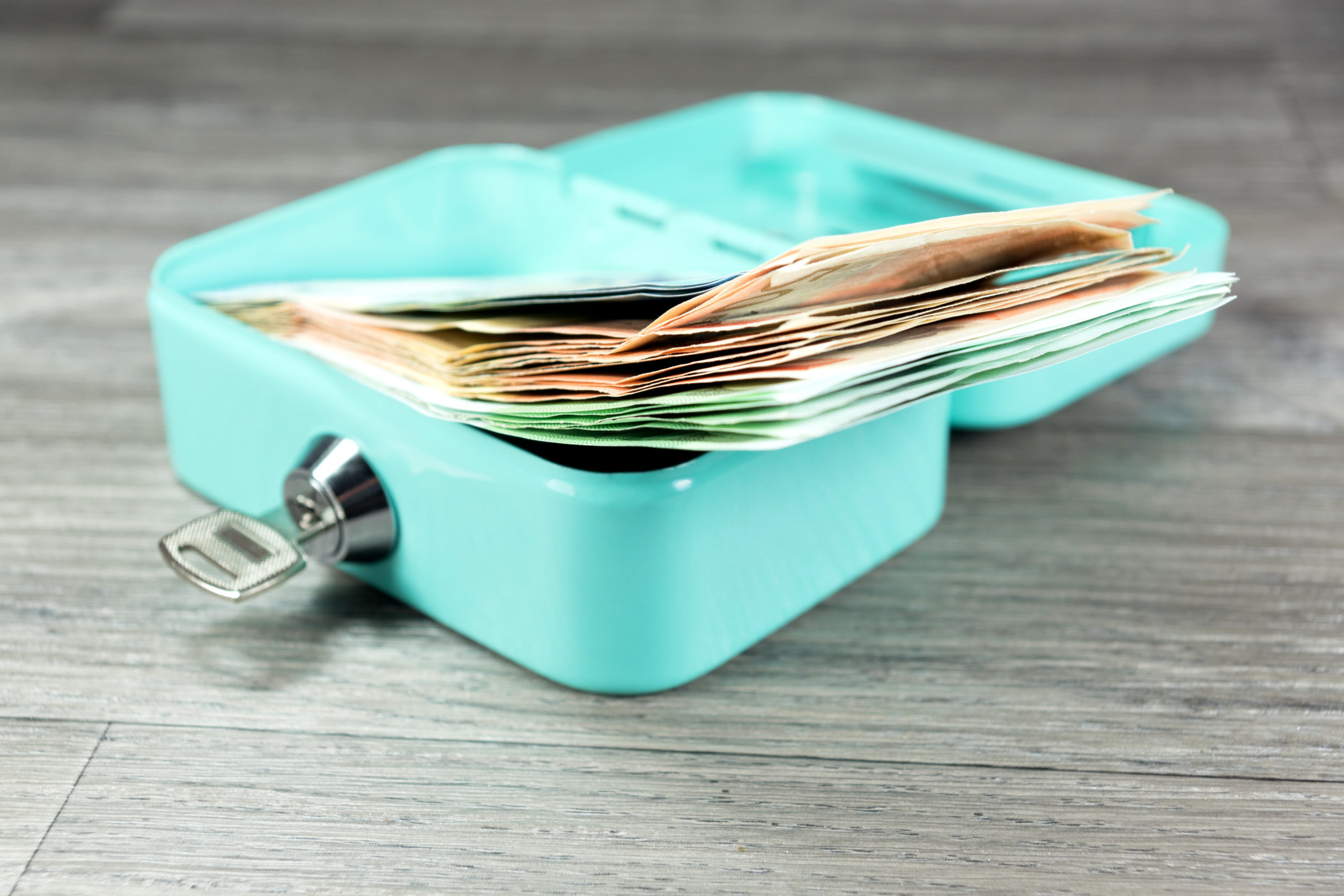Petty cash is a financial area of the company, regrettably receiving little attention despite its importance, which makes it a potential risk, Inappropriate petty cash management can make the company seriously vulnerable to workplace fraud and compliance breaches. In our article today, we give you an overview of petty cash and how it can manage it.

Definition of petty cash
The term "petty cash" refers to the fund allocated to cover small daily office expenses, The petty cash fund is usually allocated to a particular office or section, so there may be a number of such funds in operation within the company, the overall objective being to operate independently, with the minimum necessary control.
Petty cash management system
The petty cash management system helps companies ensure that these funds are used appropriately, it serves as internal control to protect those assets, without a petty cash handling system, the company can be subject to theft.
The management of the petty cash system ensures supervision and facilitates the introduction of these business expenses into your company's bookkeeping system. Although the amounts passing through the petty cash fund are small, these small expenses can accumulate over time, and most companies do not want to lose those deductions in their financial statements, or lose sight of where the resources are spent.
The process of managing your petty cash fund is usually referred to as the "advances system", this is a form of financial accounting and the main feature is that a fixed amount is booked and renewed after the money is spent, this renewal will come from another account.
The establishment of a petty cash management system will include a number of key elements, such as a designated custodian of account management, a source of funding, policies and procedures for expenditure management, and accounting procedures for expenditure resolution.
How does petty cash work?
Petty cash is the amount of cash used to settle small expenses that companies make from time to time, since the cost of writing, signing and processing checks takes a lot of time, companies prefer to pay cash immediately for a lower amount, companies keep a small amount of cash in the office under the control of the cashier, who keeps a check on each cash transaction for correct and appropriate entries.
Benefits of petty cash fund
Keeping a certain amount of money - say $100 - on hand in the form of petty cash is a good idea. A small petty fund works on:
- Reduce discretionary expenditure and prevent small purchases from proliferating to large annual expenditures
- Staff are allowed to make small and authorized purchases without filling out the expense report
- Reduces managers' need to pay for purchases out of pocket
- Reduces bookkeeping
How to manage petty cash
All petty cash expenses are tracked as part of your bookkeeping system, all tax deductions are recorded, and petty cash is managed as soon as the first check is disbursed to create a petty cash float.
For example, if you have decided to create a petty cash fund of $100, the entry of petty cash account book will show a deduction of $100 to petty cash fund and a credit of $100 to your bank account. Each time your guardian disburses the money, he or she will fill out a receipt so that at any time, total funds and receipts in the petty cash fund will add up to the initial amount of the petty cash fund.
As the remaining balance in the petty cash box becomes too small to be used, the custodian must calculate and summarize the receipts and replace them with a new cheque converted into cash equal to the total receipts, and when the cheque is disbursed, the money will be added to the petty cash until its original level is restored.
If the custodian finds that the petty cash fund is too small - This is the case if the fund needs to be refurbished every few days - It may increase the float and then be recorded in petty cash accounts. On the other hand, the custodian may consider that the amount of the Fund is overstated, in this case, the excess petty cash must be taken from the Fund and deposited into the Company's bank account.
Importance of petty cash management programme
The traditional approach to petty cash management faces a range of risks and challenges. which may impede the success of a company's petty cash management and thus invest in petty cash management programmes, It is a successful step, as the petty cash management program can help your company reduce the occurrence of mistakes, Misuse by automating the workflow process around petty cash management and providing a central repository to store all associated documents.
The petty cash management programme establishes controls to ensure that petty cash reconciliations are properly performed. These include:
- Automation of the workflow of petty cash reconciliation
- Ensure settlements are properly reviewed and approved
- Maintaining proper segregation of duties
- Provide standardized templates to ensure that petty cash funds are managed consistently across the organization.
- Easy to review documents and records easily by internal auditors.
- Recording expenses using petty cash management - software provides the finance team with immediate access to the company's office expenses.
- The cloud-based petty cash management approach allows any number of petty cash accounts to be centrally managed, which are equally effective for a small start-up or global company.
- Automated checks can be carried out to ensure that each petty cash cost falls within a specified limit. If the limit is violated, the alert is turned on.
- Petty cash costs can be monitored over time, using accurate data and integrated reporting tools. Any unusual spikes or spending patterns can be identified and investigated.
General tips for petty cash management
- You need to manage your petty cash successfully, follow these tips:
- - Renew the petty cash box, choose the amount to be spent based on the expenses you need to cover each month of petty cash.
- - Set a dollar limit or your country's currency for purchases that can be made from petty cash, whether the amount is small or medium.
- - Create a petty cash policy, so all details of your petty cash fund should be mentioned in a written petty cash policy.
- - Identify what you can buy with petty cash by describing what you can buy with petty cash and what you shouldn't buy, with exceptions.
Conclusion:
If you plan to use petty cash for small business purchases such as mail and office supplies, it may be useful to use petty cash log to track your transactions. Keeping accurate records of cash expenses will be a great help when it comes time to settle your petty cash account.

Add New Comment